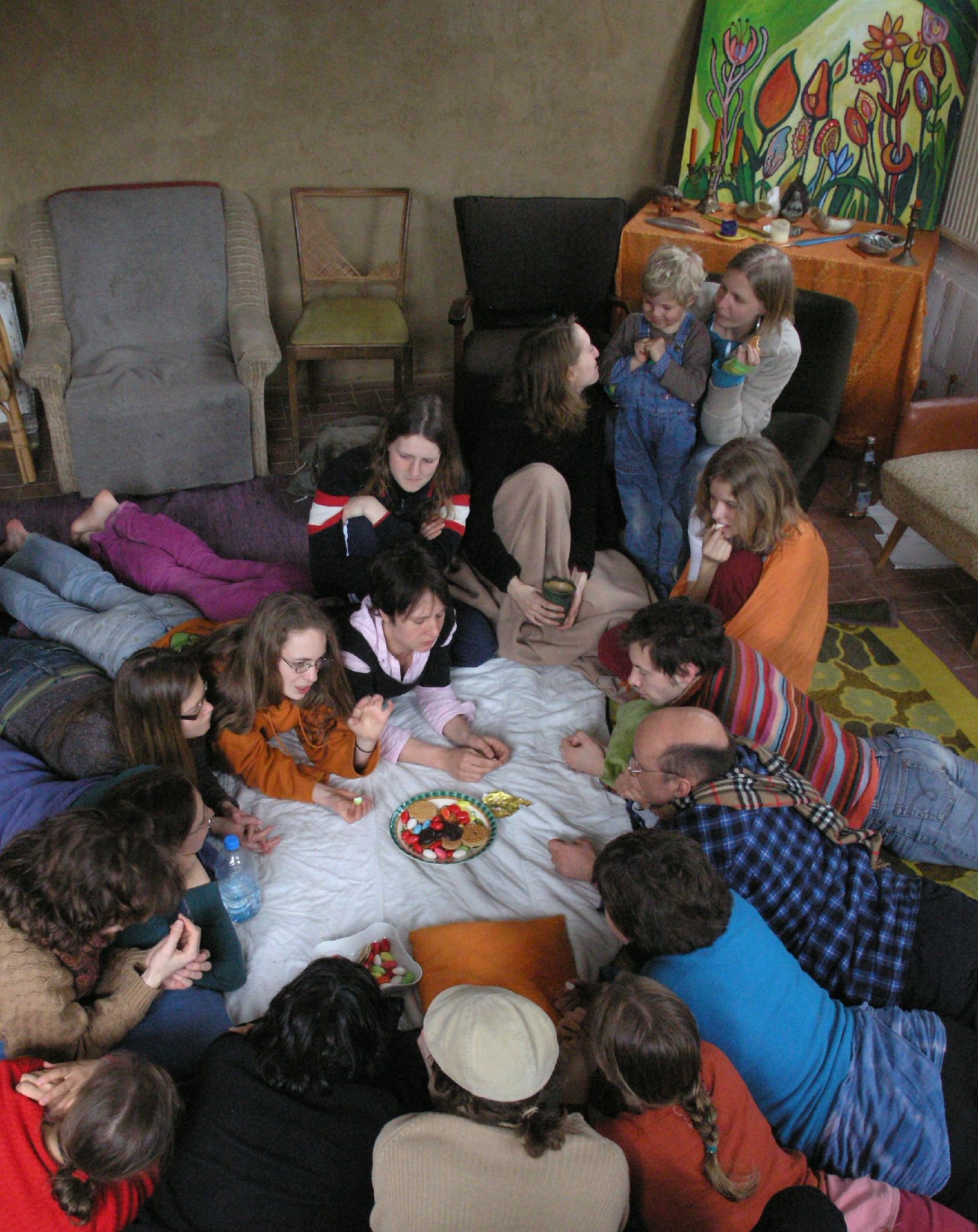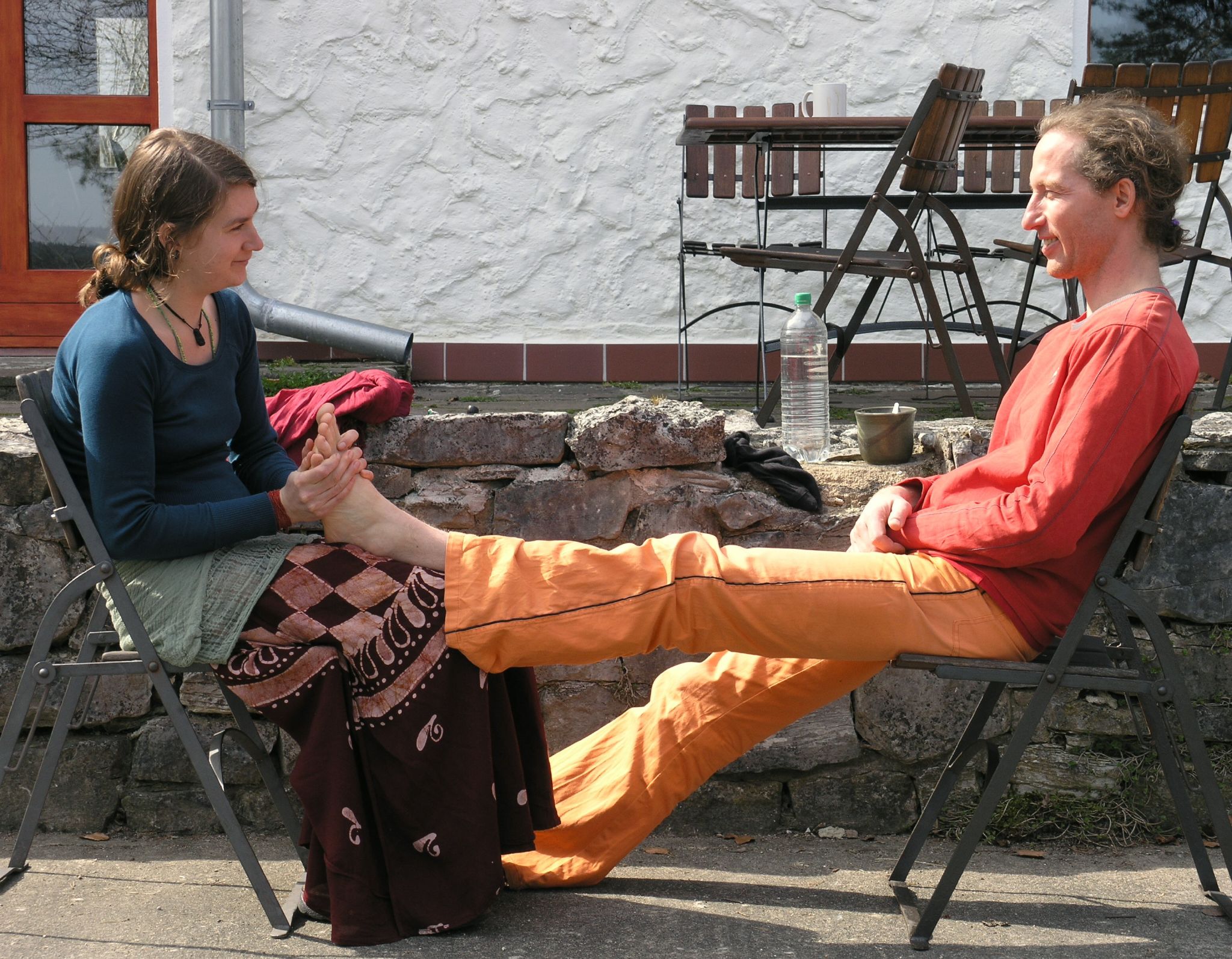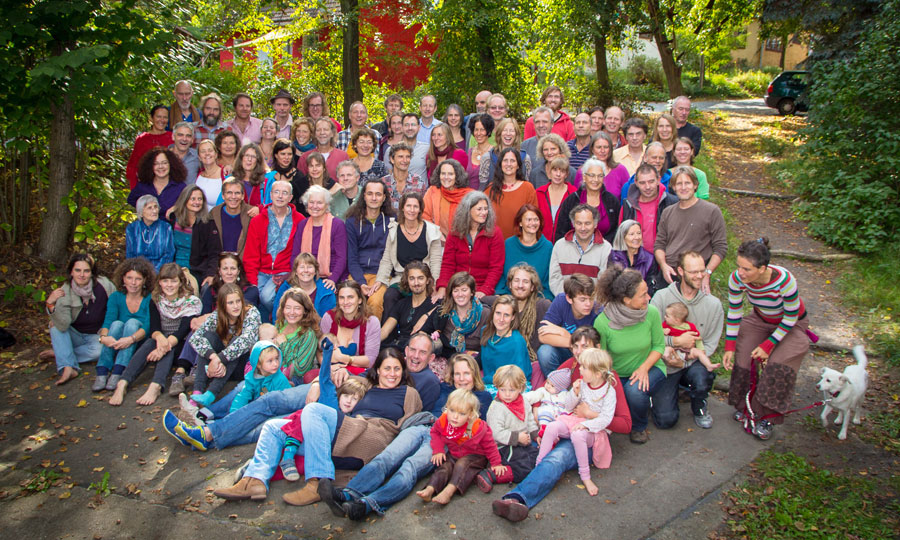ZEGG
![]()
Bad Belzig, Germany
Polyamorous / Non-Monogamous
Communal Children Housing
Ecovillage
1991 - Present

Bad Belzig, Germany
Polyamorous / Non-Monogamous
Communal Children Housing
Ecovillage
1991 - Present
1 Swamp Plants Sewage Treatment Plant 2 Reception 3 Cafe 4 Telephone 5 Restaurant 6 Pond 7 Pizza kitchen 8 Workshop & technical management 9 Model 10 Books & handicrafts 11 Village Pub 12 Main building & auditorium 13 Children’s house 14 Media Center 15 Campus 16 Campus Kitchen 17 Forest Kitchen 18 Volleyball Court 19 Large Tent 20 Wood chip heating
![2022 Map of ZEGG Plan: Drawn from Map of ZEGG. ZEGG]()
In 1991, ZEGG purchased a former Stasi training camp and transformed it into a polyamorous ecovillage that includes 15 hectares of land, with houses, an apartment block, a hotel, and a conference center. The Zentrum für experimentelle Gesellschaftsgestaltung or Center for Experimental Cultural Design, is most known for its practice of liberated love, or polyamory. Many members are in long-term, non-monogamous relationships which they believe is “... a new basis for love, loving openly and freely, without sexual limitations and jealousy, is a social and cultural revolution.” Children live with parents until they’re six, then they are communally reared in ZEGG’s Children’s House (13).
Guest programs and conferences are the main source of income for the community, but most members work outside of ZEGG. There is also a small publishing house, an environmental planning consultancy, pub (11), bookshop (10), and cafe (3). Communal dining room that seats over 100 (16), swimming pool, sauna, art studio (10), and library.
As an ecovillage, ZEGG has achieved a high-level of self-sufficiency. The community has its own water supply and eco-waste treatment center. Buildings use passive-solar, insulation, and are heated by wood chip heating plant.

In 1991, ZEGG purchased a former Stasi training camp and transformed it into a polyamorous ecovillage that includes 15 hectares of land, with houses, an apartment block, a hotel, and a conference center. The Zentrum für experimentelle Gesellschaftsgestaltung or Center for Experimental Cultural Design, is most known for its practice of liberated love, or polyamory. Many members are in long-term, non-monogamous relationships which they believe is “... a new basis for love, loving openly and freely, without sexual limitations and jealousy, is a social and cultural revolution.” Children live with parents until they’re six, then they are communally reared in ZEGG’s Children’s House (13).
Guest programs and conferences are the main source of income for the community, but most members work outside of ZEGG. There is also a small publishing house, an environmental planning consultancy, pub (11), bookshop (10), and cafe (3). Communal dining room that seats over 100 (16), swimming pool, sauna, art studio (10), and library.
As an ecovillage, ZEGG has achieved a high-level of self-sufficiency. The community has its own water supply and eco-waste treatment center. Buildings use passive-solar, insulation, and are heated by wood chip heating plant.







Nam semper semper ex
In porttitor pellentesque sapien